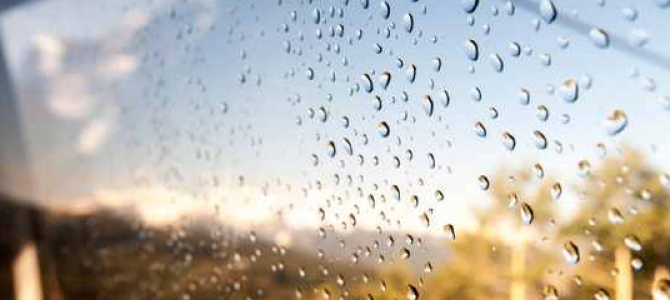 Shopping Cart
Shopping Cart
25 November 2022
Is it illegal to collect rainwater in the US?

Whilst Smart Water is an award-winning New Zealand-based company, we are proud to deliver our next-generation cloud-based product range in countries throughout the world including Australia, the UK, Canada and the US.
Although rainwater collection is actively encouraged here in New Zealand and throughout Australia, the UK and Canada, this is not the case in all the States in America.
There are, however, many states in the US where rainwater harvesting is legal, as well as some progressive states where rainwater collection is actively encouraged.
Let us take a closer look at harvesting rainwater in the US.
Is it illegal to harvest rainwater in the US?
First up, let’s tackle the big one. In the majority of cases, the answer is no. Out of the lower 48 states in the US, only two, Colorado and Utah have restrictions in place when it comes to harvesting rainwater.
In the majority of states, rainwater harvesting is either not regulated at all, or is actively encouraged by state governments and individual counties as a method for water conservation, stormwater management, and water availability in homes and businesses.
Despite rainwater harvesting having been around for some time in other countries around the world, it is still a relatively new concept in the US, and as such, the laws are only just catching up.
The federal government does not regulate rainwater harvesting at all. Instead, it is left up to individual state governments to determine the laws they wish to enforce around the collection of rainwater.
So, if you are thinking about a rainwater harvesting solution, it is always best to check with your local authorities to ensure your system complies with local codes and regulations.
Is rainwater harvesting illegal in Colorado?
Colorado is the only state in the US where rainwater harvesting is completely illegal. Every house is allowed to collect two rain barrels with a capacity of up to 110 gallons, however, anything greater than that is considered a breach of the law.
Any rainwater collected in barrels may also only be used for outdoor purposes – washing the car, watering the lawn etc, and cannot be used for drinking or cooking.
The law that prevents rainwater harvesting in Colorado dates back over 120 years. The law implies that the rainwater that falls on your property could flow downstream into someone else’s water supply, which would mean that you are taking it from them if you collect it on your own property.
This law feels out of touch with the world in which we currently live and both Colorado and Utah are in the process of updating their laws to allow for the legal harvesting of rainwater, although there are still likely to be restrictions in place, especially around the commercial collection of rainwater on farms and other large commercial properties.
Is it illegal to collect rainwater in California?
Lots of people ask whether it is illegal to collect rainwater in California and in the majority of cases, there are no regulations in place to prevent the collection of water in the state. That means, if you want to collect rainwater for outdoor or indoor purposes, you can install a rainwater harvesting system like a water tank, and collect the rainwater that falls on your roof.
The only time you would need to seek a permit for the collection of rainwater in California is if your rainwater collection is being used to create a water supply such as a swimming pool, spa, or fountain. In such cases, a landscaper must be authorised to enter a prime contract for such a system, however, other than this water harvesting is legal in California and encouraged.
Collecting rainwater in Texas
On the flip side of the laws preventing the collection of rainwater in Colorado, Texas is a state that actively encourages the collection of rainwater. From stormwater retention to water availability, there are plenty of good reasons why the state of Texas actively encourages the collection and harvesting of rainwater.
Many counties across the state offer tax incentives to residents and businesses that install rainwater harvesting systems as well as there being a sales tax exemption on rainwater harvesting systems. The Texas Rain Catcher Award is another incentive scheme that recognises the contribution of individuals and entities pursuing rainwater harvesting as a water conservation strategy.
As well as supporting individual households, the Texas government also requires certain new state facilities to incorporate rainwater harvesting systems into their designs, helping to futureproof the state for the collection of rainwater.
Which states have regulations in place for the harvesting of rainwater?
Every state in the US could benefit from rainwater harvesting. Whether that is for stormwater prevention or helping to increase the availability of water, there are no states that would not benefit from the additional benefits of rainwater harvesting.
In addition to Colorado, there are some other states that place restrictions on the collection of rainwater. These states are all currently reviewing those regulations, however, here is a quick overview of the current situation in states that place restrictions on the harvesting of rainwater:
Utah
As we mentioned, along with Colorado, Utah is the only other lower state where the collection of rainwater is illegal. Unlike Colorado, however, Utah has a much bigger allowance when it comes to the amount of rainwater you are allowed to collect before you are in violation of the law.
In Utah, you can legally collect up to 2,500 gallons (9,463 litres) of rainwater from your property. Whilst this is still a relatively small amount, it can help to reduce the strain on stormwater systems as well as provide water for outdoor purposes during the summer months. You will require a permit if you want to set up a rainwater harvesting system in Utah.
Oregon
Rainwater harvesting is legal in Oregon, however, you may only collect rainwater from your rooftop surface, not rainwater that falls to the ground or from a water source that runs through your property.
Ohio
It is legal to collect rainwater in Ohio, however, there are strict codes and regulations that must be followed.
North Carolina
North Carolina is another progressive state where rainwater harvesting is actively encouraged due to water conservation efforts.
New Mexico
Whilst you will need a permit for some rainwater harvesting systems in New Mexico, it is another progressive state along with Texas and North Carolina and has payable incentives in place for green buildings including those that incorporate a rainwater harvesting system.
Idaho
Like Oregon, you may only collect rainwater in Idaho that has fallen onto the rooftop of your property and not water that has entered a natural waterway that flows through your property.
Summary
As further awareness grows around the importance of rainwater harvesting and its environmental benefits, we can expect changes to the way in which some states regulate the use of rainwater harvesting systems. We can also expect more states to join the progressive states like Texas, North Carolina and New Mexico in offering incentives to those who choose to harvest rainwater.
Here in New Zealand, despite having no regulations, we still have a way to go in terms of incentivising the harvesting of rainwater. Whilst there are some progressive local councils, where rainwater harvesting systems are actually compulsory, there is still a big gap that needs to be filled when it comes to the conservation of water.
Here at Smart Water, we are doing our bit to make the harvesting and in particular, the monitoring of your water supply much easier.
When it comes to managing your water and monitoring your usage, Smart Water has a range of solutions to help you to keep on top of your consumption and ensure you manage your water usage efficiently.
Easy to install yourself, your Smart Water tank indicator provides you with all the information you need from our app or from one of our LCD displays. Find out how much water you consume on average from your tank, accurate pressure data and estimates on when your tank will run out of water based on current usage.
Find out more about our range of products or check out our FAQs for more information.
Frequently Asked Questions
Is rainwater safe to use for drinking in the United States?
Rainwater must be properly filtered and treated before it is safe to drink. While many states permit rainwater harvesting, they often recommend using it for non-potable purposes such as gardening or cleaning unless the system meets strict health and filtration standards
Do I need a permit to install a rainwater collection system?
It depends on the state and the size of your system. Most states allow residential rainwater harvesting without permits, but states like Utah, New Mexico, and some counties in California require permits for larger systems or for systems intended as a primary water supply.
Can Smart Water products be used legally in states with rainwater restrictions?
Yes. Smart Water’s monitoring systems can be used anywhere, including in states with collection limits. Even in states like Colorado and Utah, where collection volumes are capped, Smart Water indicators help users track levels accurately and ensure they stay within legal limits.
Related Posts
· Collecting and using rainwater – a beginner’s guide
· How much rainwater can you harvest from your roof?
